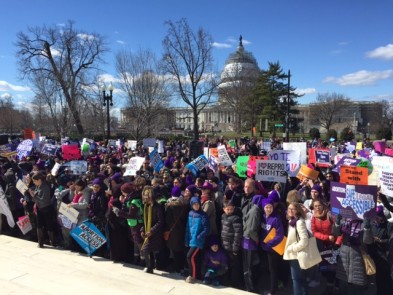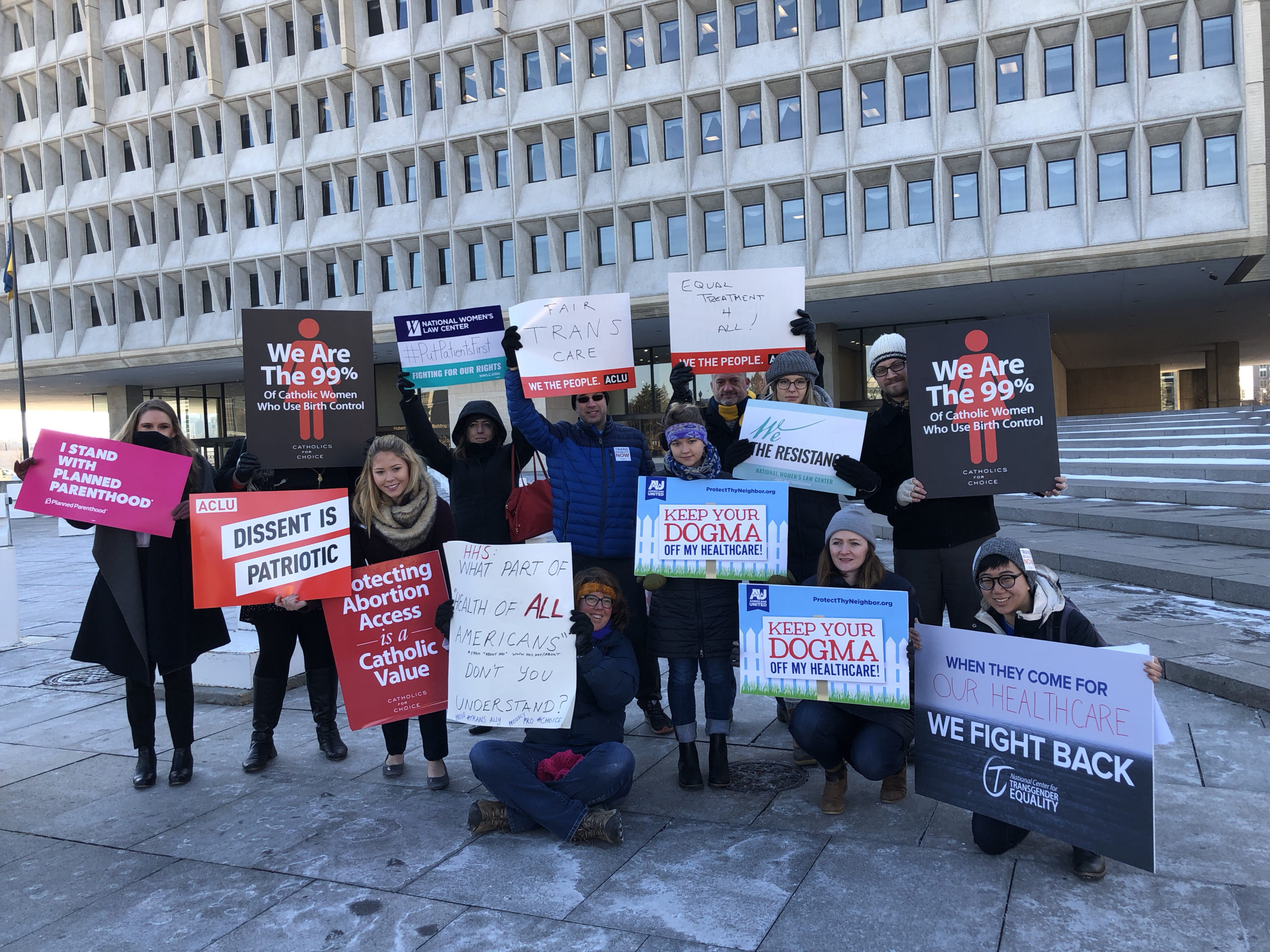Abortion rights, women of color, and LGBTQIA+ people are under attack. Pledge to join us in fighting for gender justice.
Supreme Court Victory for Working Women and Unions Threatened by Senate Inaction
In a week that has been characterized by assaults on the dignity, rights, and economic security of some of the most marginalized in society, a victory for working women, people of color, and LGBT individuals sprouted up on Tuesday morning like a spring flower. Shortly after 10 am, the Supreme Court issued its opinion in Friedrichs v. California Teachers Association affirming, by an equally divided vote, the decision of the U.S. Court of Appeals for the Ninth Circuit. That means that the public employees who enjoy the increased wages, benefits, and other protections a union negotiates can still be required to contribute their fair share to the cost of securing those benefits and protections, consistent with the nearly 40-year-old Supreme Court precedent, Abood v. Detroit Board of Education.

While the Supreme Court’s opinion was all of one line, the list of benefits that will continue to accrue to women, people of color, LGBT individuals and their families from this decision is far from short. Fair share fees protect the health of public sector unions. And when workers are allowed to band together in unions, they experience enhanced economic security.
This is a victory for women. NWLC’s analysis shows that women represented by public sector unions are paid 24 percent more and are more likely to have employer-based health insurance than their unrepresented counterparts. Women also experience greater equality in public sector unions—the gender wage gap among union-represented public sector workers is about half that among their unrepresented counterparts. This is due in part to the fact that unions bring greater wage transparency and standardization in collectively bargained wages, as well as formal grievance processes and union representation to address complaints regarding wages. Indeed, the Wall Street Journal recently provided a powerful example of the importance of unions to equality when its editor pledged to close the gender and race gaps in newsroom salaries after union data (albeit a private, not public, union) revealed that white men made significantly more than everyone else at publications owned by Dow Jones & Co.
It is also a victory for LGBT workers who—as was demonstrated so clearly this week—do not have consistent legal protections against discrimination, given that unions frequently bargain for protections against unfair treatment and discrimination against LGBT workers.
But don’t launch into a full-fledged victory dance quite yet. While Abood remains the law of the land, with a 4-4 tie, only the decision of the Ninth Circuit upholding Abood is affirmed, which means the Court’s holding is only binding in the nine states and two territories that make up the Ninth Circuit. Today’s decision therefore leaves open the possibility that this issue could be brought before the Court again—especially if a lower court outside of the Ninth Circuit were to rule against workers. And this is a real concern because anti-union lawmakers and organizations across the country have been fighting to weaken public sector unions by inhibiting their ability to collect fair share fees.
The Supreme Court has many more cases left to hear this term and any number of them could be 4-4 ties, providing no national precedent on a variety of important legal issues. The Senate must do its job to ensure there is a full Court of 9 justices to hear and resolve these cases. A hamstrung Supreme Court leaves far too many critical rights in the balance.




